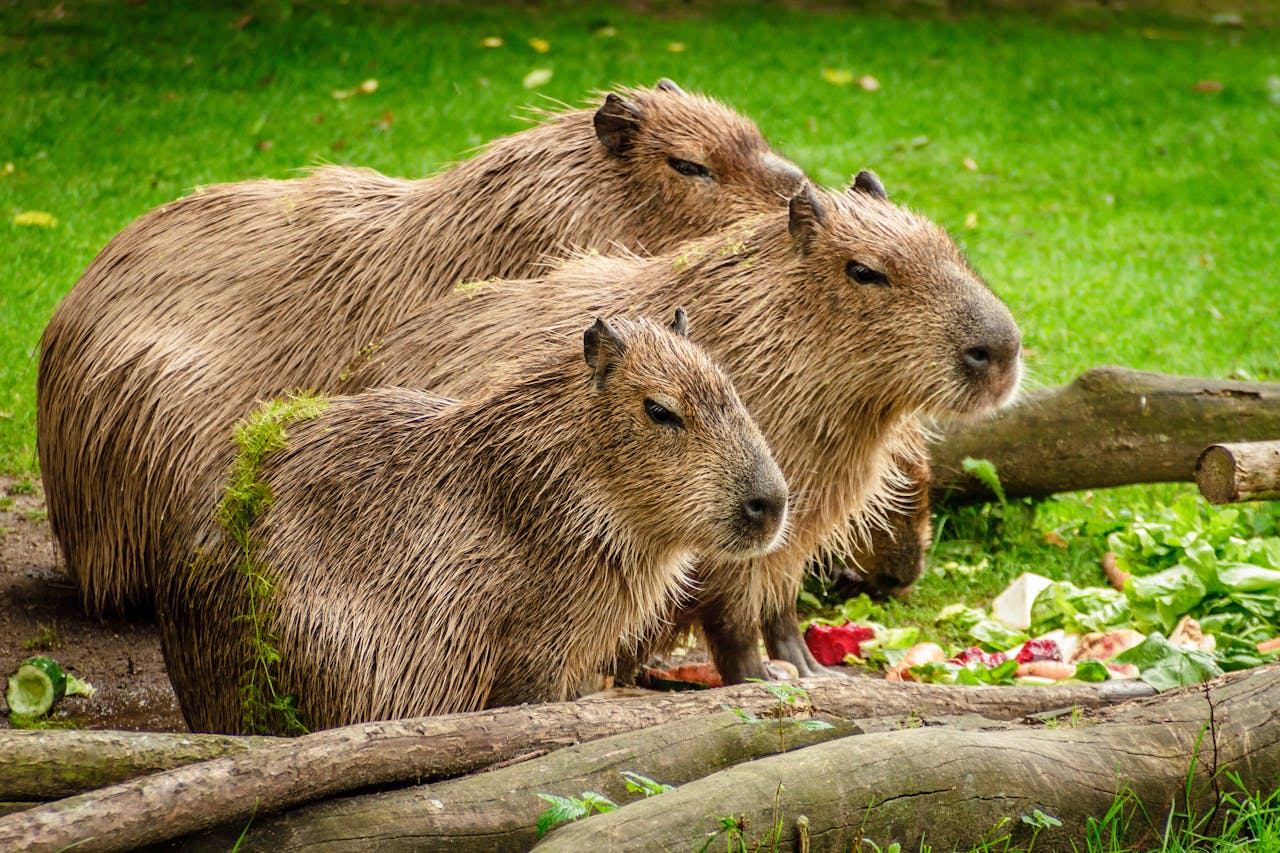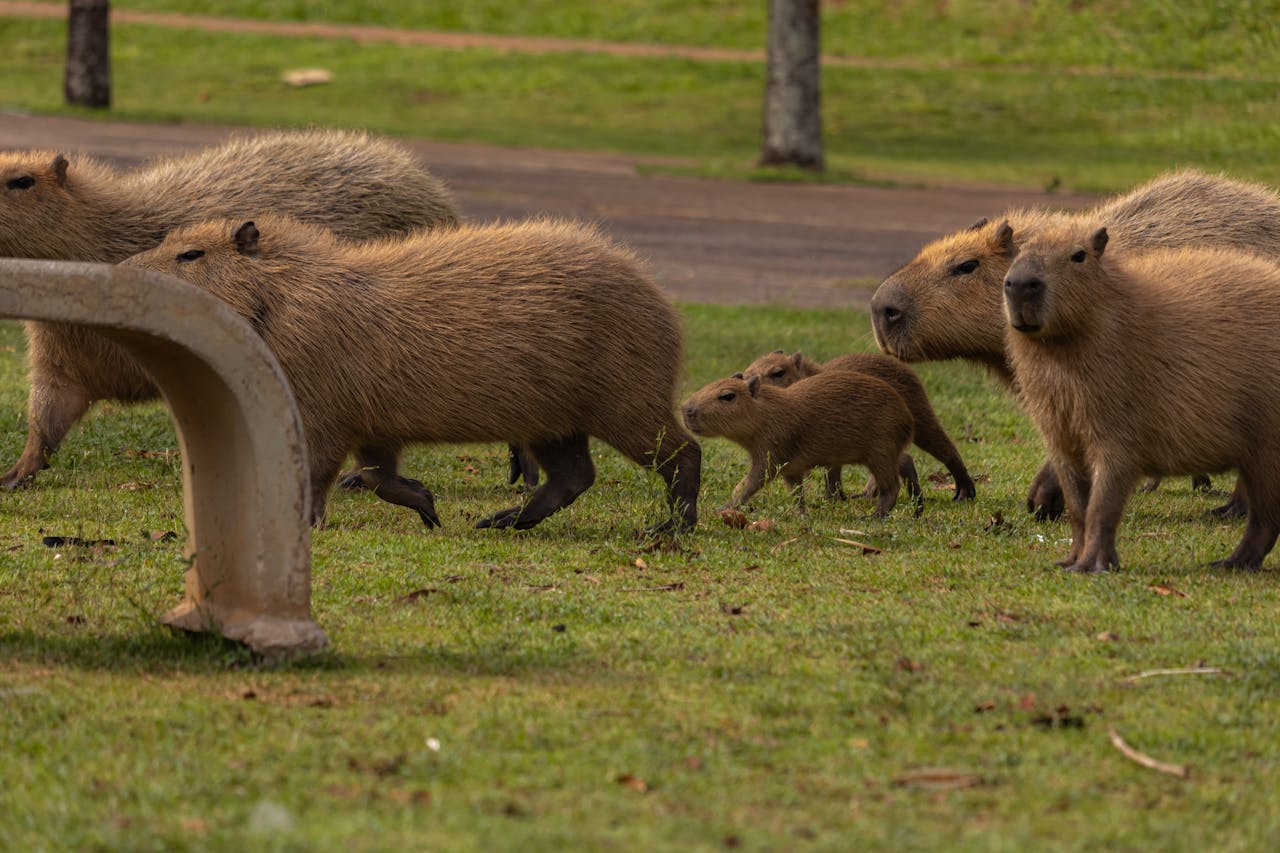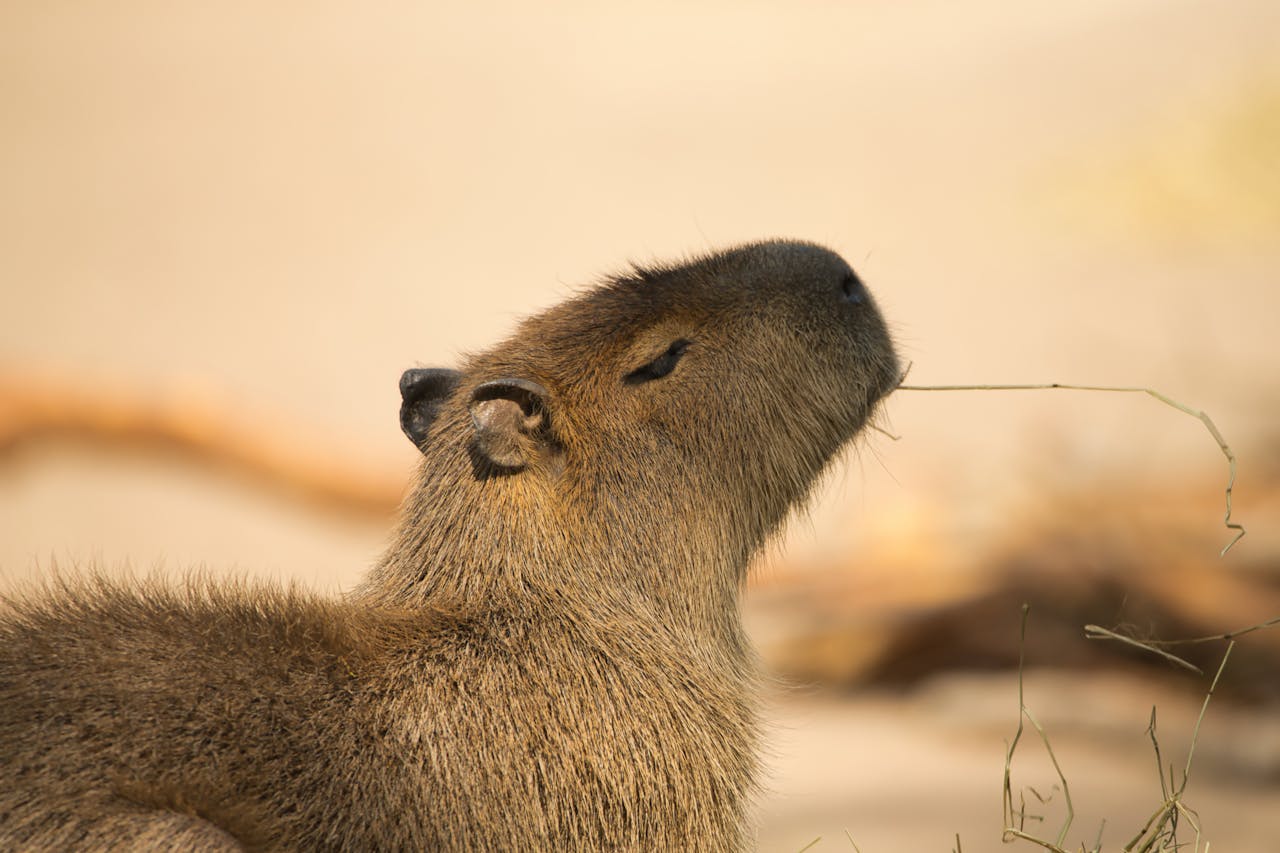What It's Like to Own a Capybara?

Capybaras, the world’s largest rodents, have taken the internet by storm in recent years. With their gentle demeanor, Buddha-like smile, and chill vibe, these “giant guinea pigs” have become a symbol of relaxation and harmony. But before you decide to bring a capybara home, let’s explore what it’s really like to live with one of these unique creatures.
First Impressions: Gentle Giants of Nature
Capybaras, or Hydrochoerus hydrochaeris, are native to South America, often found in groups near rivers and wetlands. They’re calm, social, and incredibly charming. Whether they’re lounging in the water or interacting with their companions, capybaras exude a tranquility that’s hard to resist.

Do You Have the Space?
Capybaras are not pets for small homes or apartments. Here’s what they need:
- Outdoor Space: At least 400 square feet (37 square meters) per pair, with secure fencing (minimum 4 feet or 1.2 meters tall).
- A Pool: Capybaras love swimming! A pool at least 3 feet (1 meter) deep is a must.
- Climate Control: They thrive in temperatures between 45–100°F (7–38°C). In colder climates, you’ll need heat lamps and indoor accommodations.

Diet: Simple Yet Specialized
Capybaras primarily eat high-quality hay, such as Timothy or Orchard grass, supplemented with guinea pig pellets containing vitamin C. Occasionally, they can enjoy vegetables like carrots or apples, but avoid sugary foods to prevent health issues.
Social Butterflies
Capybaras are highly social animals. They need a buddy or they’ll feel lonely and stressed. Watching two capybaras interact—playing, grooming, and even “talking” with their signature whistles and purrs—is both heartwarming and entertaining.
Challenges of Owning a Capybara
- Space: Their large size and need for water make them unsuitable for most homes.
- Cost: Beyond the initial purchase (about $1,000–$3,000), the cost of food, veterinary care, and habitat maintenance can add up.
- Wild Instincts: Despite their calm demeanor, they retain natural behaviors, such as eating their own waste (coprophagy) to absorb nutrients.
Where Are Capybaras Legal?
In the U.S., capybaras are legal in some states, including Texas, Florida, and Arizona, but banned in others, like California and Georgia. Always check local laws before bringing one home.